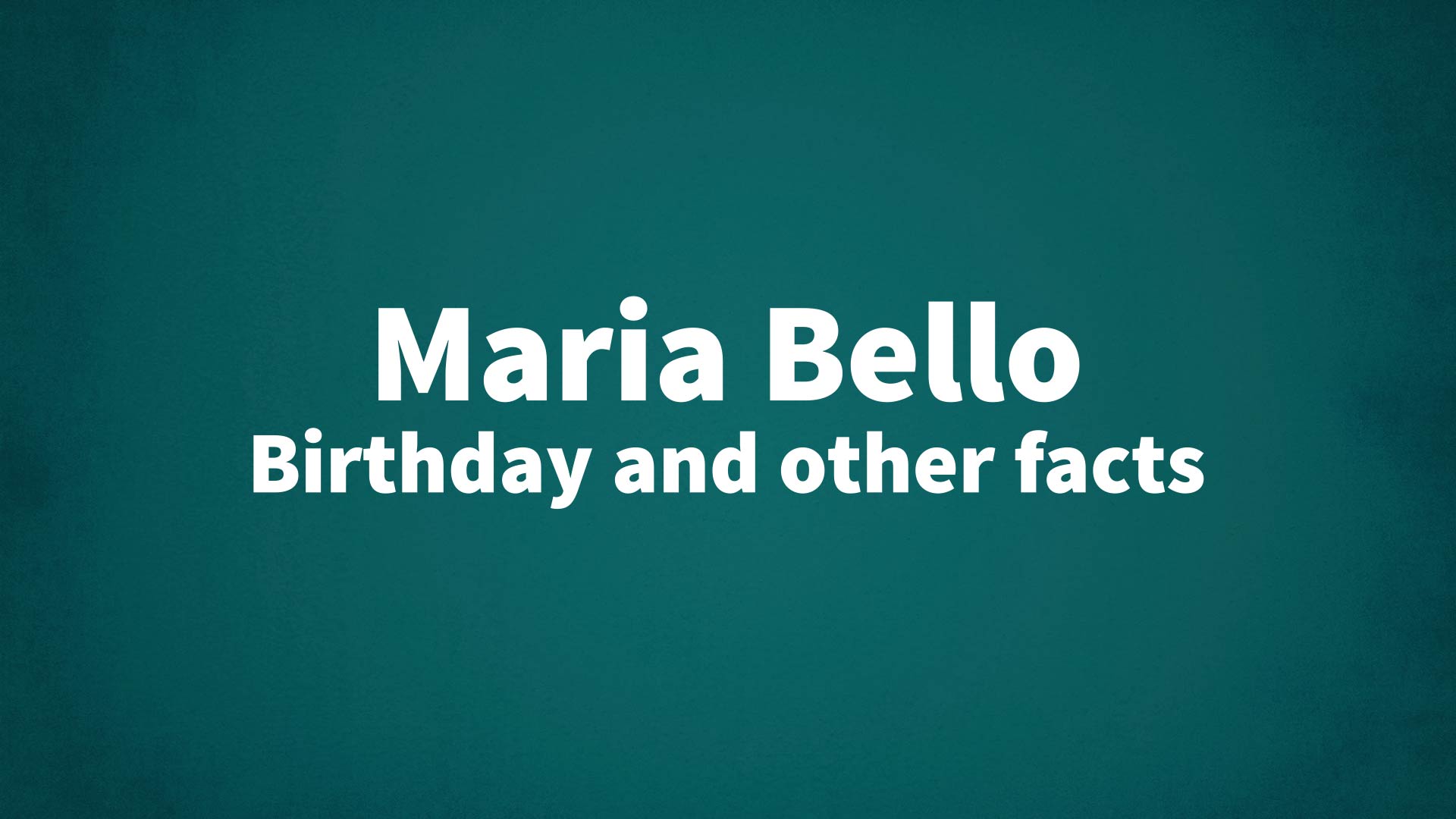Maria Callas: Unveiling The Iconic Diva On Screen
Biography: The Legend of Maria Callas
Maria Callas was more than just an opera singer; she was a phenomenon. Born Maria Anna Cecilia Sofia Kalogeropoulos in New York City in 1923 to Greek immigrant parents, her journey to becoming "the world's greatest opera singer" was marked by immense talent, relentless dedication, and profound personal struggles. Her voice, a dramatic coloratura soprano, possessed an extraordinary range and flexibility, allowing her to tackle roles from bel canto to verismo with equal mastery. Critics and audiences alike were mesmerized by her unique ability to combine vocal virtuosity with intense dramatic interpretation, breathing new life into characters like Norma, Tosca, and Violetta. Her career flourished in the mid-20th century, cementing her status as one of the most influential and legendary opera singers. Maria Callas sang for audiences all around the world, gracing the most prestigious opera houses from La Scala in Milan to the Metropolitan Opera in New York. Her performances were not merely concerts; they were transformative experiences that left an indelible mark on the history of opera. She was known for her meticulous preparation, her demanding standards, and her unwavering commitment to the emotional truth of the music. However, her life off-stage was equally dramatic, filled with public romances, controversies, and a constant battle with her own insecurities and public perception.Personal Data and Biodata
While the provided data focuses on the film "Maria" and Maria Callas's professional legacy, we can infer and present key biographical details that define her as a public figure and the subject of this compelling new biopic. | Category | Detail Maria, the name Maria Callas is a truly remarkable one in the Maria world of opera. Maria Callas, the world's greatest opera singer, lives the last days. Maria Callas was a star of the stage, one of the most influential and legendary opera singers of the 20th century. Now she is a star of the screen, portrayed by Angelina Jolie.Maria, The Film: A Glimpse into Her Final Days
The film "Maria" is not just another biopic; it's a profound psychological drama that transports us back to the dramatic final days of one of the original divas of modern opera. Directed by Pablo Larraín, known for his incisive character studies in films like "Jackie" and "Spencer," "Maria" promises an intimate and perhaps unsettling look into the inner world of Maria Callas. The screenplay, crafted by Steven Knight, suggests a narrative that delves deep into the emotional landscape of Callas, exploring her vulnerabilities and struggles during her twilight years. The premise indicates that while Maria Callas sang for audiences all around the world throughout her illustrious career, in "Maria," she's training for her final performance — for an audience of one. This singular focus hints at a deeply personal and introspective journey, moving beyond the public persona to reveal the woman behind the legend. The film's emphasis on her "last days" suggests a narrative arc that explores themes of legacy, solitude, and the relentless pressure of a life lived in the public eye. The involvement of actors like Pierfrancesco Favino, Alba Rohrwacher, and Haluk Bilginer alongside Angelina Jolie further enriches the ensemble, promising a nuanced portrayal of the complex relationships that shaped Callas's life.Angelina Jolie's Portrayal of Maria
The casting of Angelina Jolie as Maria Callas has generated considerable buzz, and for good reason. Jolie is renowned for her ability to embody complex and powerful female characters, and her transformation into the iconic opera singer is eagerly anticipated. Early reactions from the Venice International Film Festival, where "Maria" premiered on Thursday, August 11, suggest that Jolie's performance is nothing short of captivating. She is seen as a potential Oscar heavyweight for this Netflix movie, signaling a performance of significant depth and impact. Jolie's commitment to the role appears profound, aiming to capture not just the physical likeness but also the essence of Maria Callas's spirit. Callas was known for her intensity, her passion, and her often-turbulent emotional life. To portray this requires an actress who can convey vulnerability alongside immense strength. The film's focus on Callas's later life, when her voice was in decline and her personal life was fraught with challenges, provides a rich canvas for Jolie to explore the human cost of extraordinary talent and fame. Her portrayal is expected to bring to light the internal struggles of a woman who "was always trying to please," hinting at the profound psychological pressures Callas faced throughout her life and career.What's Real and What's Not?
A biographical psychological drama often blurs the lines between historical accuracy and artistic interpretation. For a figure as larger-than-life as Maria Callas, discerning "what's real and what's not" in a cinematic portrayal becomes a key point of interest for audiences and critics alike. While the film is grounded in the known facts of Callas's final days, including her solitude and her struggles with her voice, Larraín and Knight's approach suggests a focus on the internal, emotional truth rather than a mere chronological recounting of events. The "Data Kalimat" implies that the film captures Callas's essence as "the world's greatest opera singer" and a "star of the stage." However, by focusing on her "last days" and her training for an "audience of one," the film may take liberties to explore her psychological state, her memories, and her reflections on a life lived intensely. This approach allows for a deeper emotional resonance, even if certain scenes or dialogues are imagined to serve the narrative's psychological objectives. The film aims to present Maria Callas as a human being, with all her complexities and contradictions, rather than just a historical figure.The Psychological Depth of Maria
The description of "Maria" as a "biographical psychological drama" underscores its intent to delve into the mind of Maria Callas. This isn't merely a recounting of her career highlights or a sensationalized depiction of her relationships. Instead, it seeks to explore the inner turmoil and emotional landscape of a woman who reached the pinnacle of artistic achievement but grappled with profound personal challenges. The phrase "Maria Callas, the world's greatest opera singer, lives the last days" immediately sets a somber, introspective tone, suggesting a focus on her vulnerability and resilience in the face of decline. The film's premise that Maria is "training for her final performance — for an audience of one" is particularly telling. It highlights a shift from public adulation to private introspection, emphasizing her internal world. This intimate focus allows the film to explore themes of identity, legacy, and the emotional toll of a life lived under intense scrutiny. The idea that "the famed opera singer 'was always trying to please'" hints at a deep-seated need for validation and acceptance, perhaps contributing to her psychological struggles. This psychological lens is crucial for understanding the depth and complexity of Maria Callas, moving beyond her public image to reveal the woman beneath the diva.The Global Impact of Maria Callas
Maria- Current Pic Of Brendan Fraser
- Season 14 Greys Anatomy Interns
- Carlos Bakery Prices
- Bindi Irwin Health
- Rowan And Martin Laugh In Tv Show

Maria Bello Wallpapers - Wallpaper Cave

HorribleBosses: Maria Bello Actress

Maria Bello - Birthday and other facts